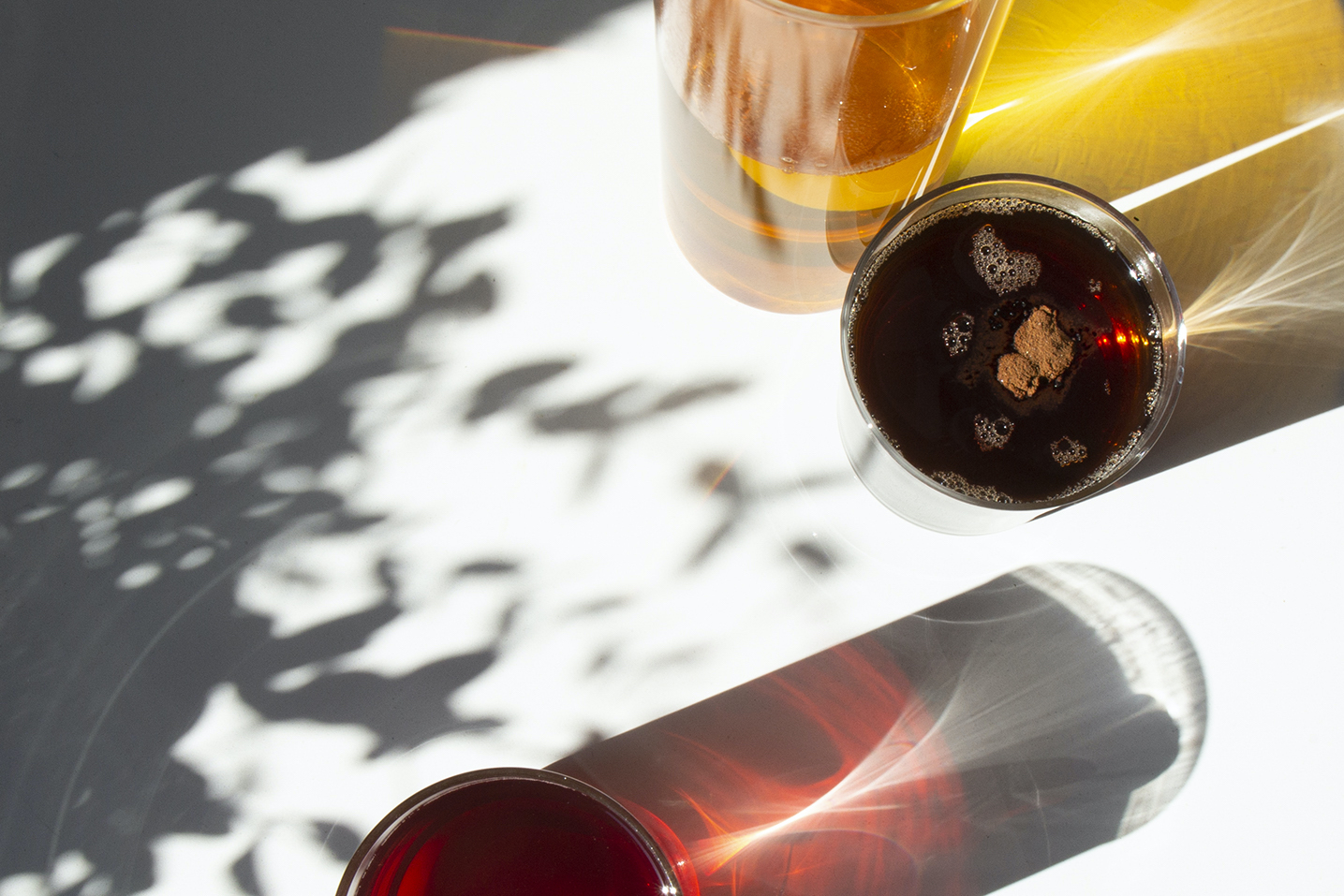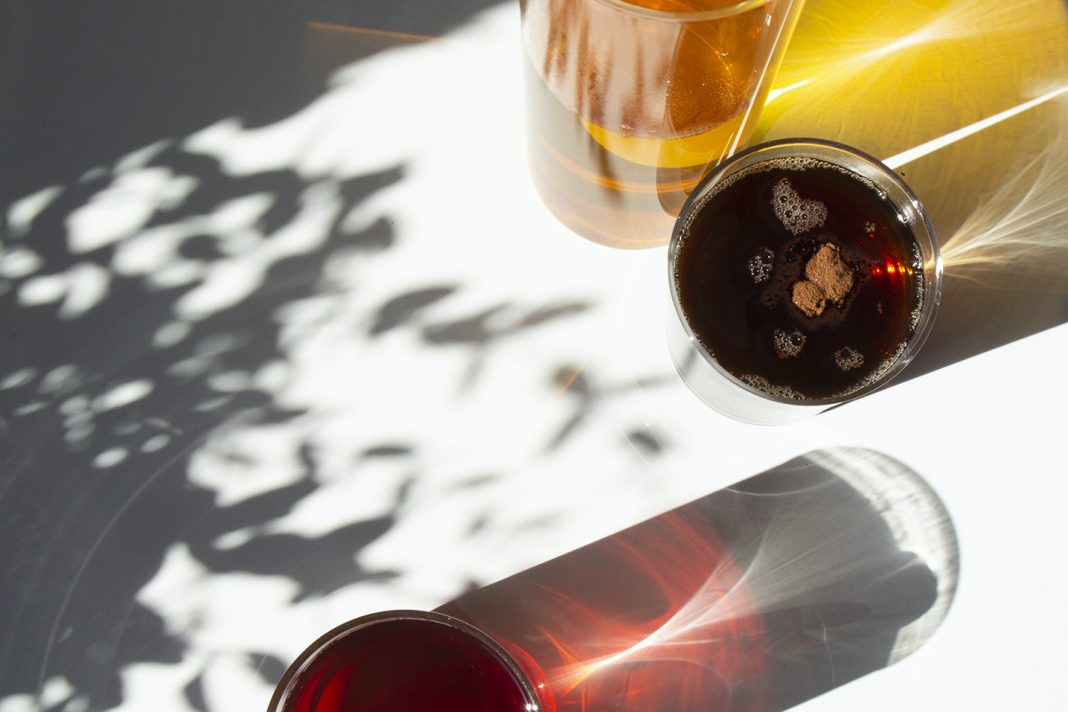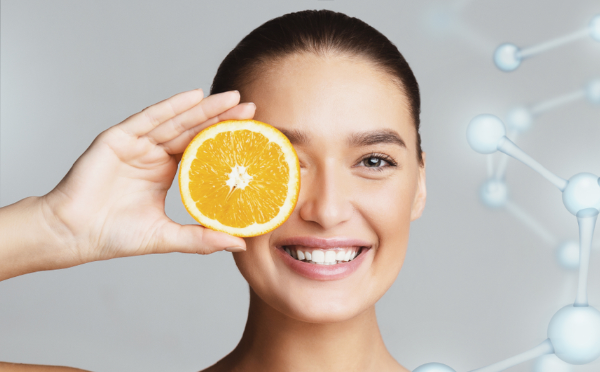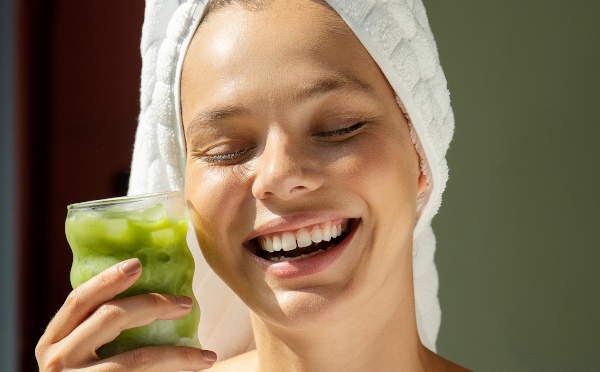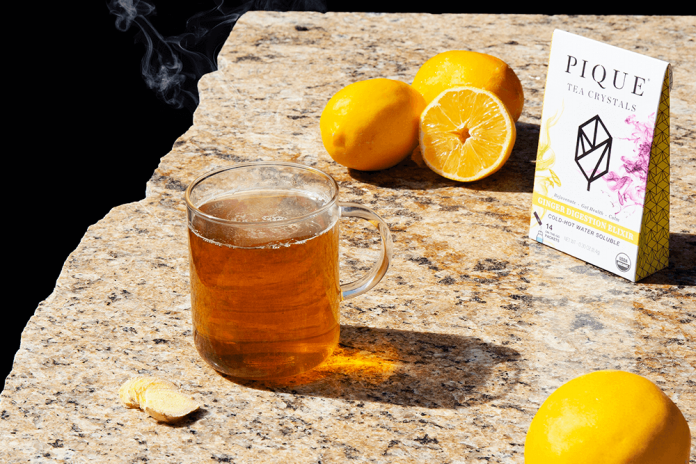Imagine it’s a crisp Autumn evening. You’re winding down for the night, comfy under a warm blanket and craving a hot tea. What do you brew?
Chances are it’s not a black tea – too much caffeine. And probably not something fruity and light like a peach white tea – not exactly a Fall flavor. Perhaps you reach for a soothing chamomile or a slightly spicy ginger tea?
You probably don’t make this choice very deliberately. It seems intuitive to choose certain teas for certain times of the day or year.
But does it matter? You bet.
Different teas have different ways of impacting digestion, mood, energy levels and beyond.
We’ve got the perfect primer to help you learn when to drink each type of tea, so that you can harness their natural power from morning to evening… and throughout the seasons!
Best Morning Teas
Many people start their day with coffee because it provides a quick caffeine jolt. Unfortunately, this often leads to jitters, feeling wired and unfocused, and an energy crash later. Not fun!
Tea can be just as energizing — and delicious — as coffee, but without those bummers. Here’s why: l-theanine, a natural amino acid found in black, green and white teas, provides a state of calm, focused awareness that counteracts the caffeine. (1)
Black Tea
Black tea typically contains more caffeine than other types of tea. This makes it the perfect morning substitute for coffee. It’s also incredibly versatile, pairing well with nut milk, sweetener, or on its own.
The caffeine in black tea increases physical energy and mental alertness, which helps to direct focus on the tasks ahead (1). Compared to other teas, black tea also tends to have a more robust flavor, with hints of earthiness and smokiness.
Much like coffee, black tea’s depth and richness provide some comfort as you shake off the cobwebs and gear up for the day.
Even better? Black tea is naturally prebiotic and its abundant theaflavins (a type of polyphenol) can help with bowel regularity.
There are many varieties of black tea beyond the popular English Breakfast and Earl Grey. Ever heard of Hei Cha or Nilgiri? There are a range of flavor profiles to explore in this category alone, so don’t be afraid to mix up your regular morning brew.
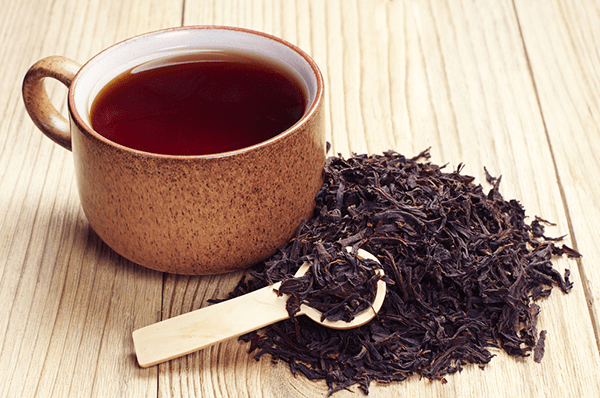
Oolong Tea
Though made from the same plant as black and green teas, oolong’s flavor is less intense because its leaves are less oxidized. A shorter fermentation time means a different taste – a pleasant slightly-roasted and nutty flavor. And yes, it has caffeine!
It’s a “best of both worlds” option for those who love the qualities of black and green tea. Not only does it contain helpings of each of the polyphenols found in black and green teas (theaflavins and catechins, respectively), but its distinctive taste balances the smoothness of black tea and the lighter feel of green tea.
The polyphenols in oolong have also been shown to support gut health (2). A diet rich in different varieties of polyphenols helps to support your microbiome and thus supports overall flourishing health.
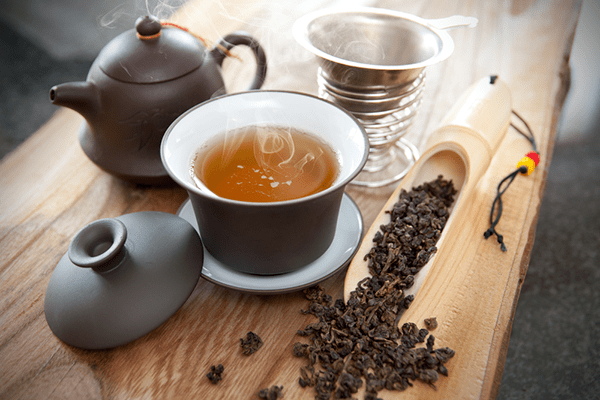
Best Afternoon Teas
Forget about an afternoon slump. You can make your afternoon a powerhouse of productivity with tea. Specifically, this is the time to pick up a fresh, enlivening cup of green or white tea.
The right kind of afternoon tea should give you steady energy and focus without too much caffeine. This will allow you to wind down before dinner and get ready to relax into the evening.
Green Tea
Catechins found in green tea are prebiotic and are great for supporting digestion. This makes green tea the ideal drink to sip with lunch or after your midday meal. It’s excellent hot, or feel free to enjoy it iced, which makes it extra refreshing and hydrating. Its health benefits make it far superior to soda.
Bonus: green tea catechins have also been linked to increased satiety, which means you might be less likely to nibble on unwanted afternoon snacks.
Please note: catechins can be tough on sensitive tummies, especially when you’re not used to consuming them. Especially if you’re new to tea, you may want to avoid drinking green tea on an empty stomach.
The caffeine in green tea will have you sailing through your afternoon slump-free. While it’s not as high in caffeine as black tea, if you’re very sensitive, you may want to restrict green tea to early afternoon.
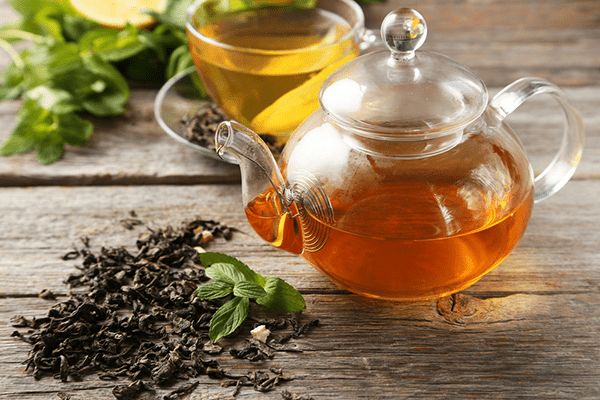
White Tea
The milder and slightly sweet flavor of white tea makes it a great choice if you aren’t into green tea’s sometimes grassy flavor.
White tea is harvested while the leaves are young and does not oxidize for as long as green or black tea. This means it retains more of its nutrients (5).
White tea also contains low to moderate amounts of caffeine and l-theanine. This makes it a perfect choice for a gentle pick-me-up in the afternoon.
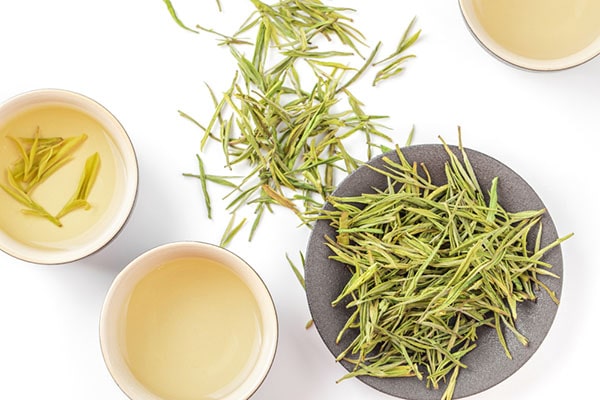
Best Evening Teas
Making a cup of tea in the evening can be a soothing ritual that helps you get to a great night’s sleep.
This is not the time to enjoy your black, green, or white teas due to their natural caffeine content. Caffeine is a well-known sleep disruptor, and some people need several hours to clear it from their bodies. Instead, focus on caffeine-free herbal teas that can support your health needs throughout the night.
Herbal Tea
Completely free of caffeine, herbal teas are best before bed. One study found that a prolonged regimen of twice-daily herbal tea over four weeks helped drinkers reduce fatigue and improve sleep quality (6).
Made from herbs, spices, flowers and dried fruits, the flavor options are seemingly endless, but a few favorites stand out for their calming properties.
Here are some evening tea examples:
- Ginger and mint help support digestion
- Hibiscus tea has a fresh, tart taste and powerful punch of vitamin C
- Chamomile and lavender teas offer a pleasant aroma and a mild relaxing effect
Whichever herbal tea you choose, enjoy your cup with calm and peace as you end your day and prepare for sleep.
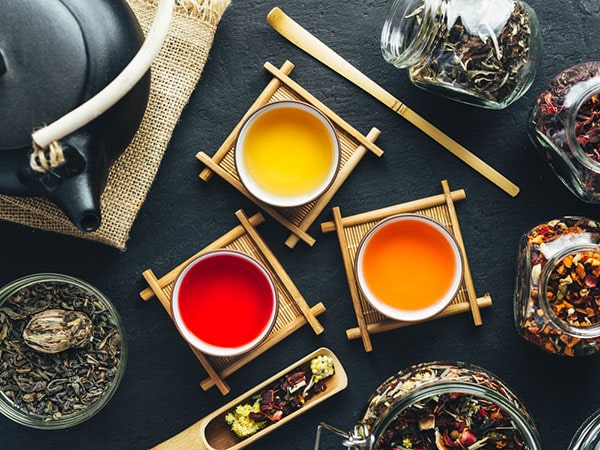
Why to Time Your Tea
You may have noticed a common theme in the above recommendations. Most revolve around energy – jumpstarting it in the morning, revitalizing it in the afternoon, and winding it own in the evening.
The tea you choose should align with your natural circadian rhythm; disrupting this rhythm can cause cascading health issues, from poor digestion to increased stress (10).
All tea offers a dose of antioxidants and a unique flavor, but the caffeine content and other characteristics that impact feelings of either alertness or relaxation are important to consider. In short, your tea choice should support the natural ebb and flow of energy and activity throughout the day, not fight it.
Teas Are Seasonal Too
Just like coffee drinkers go for cold-brew in the Summer and pumpkin-spice in the Fall, there are also ideal times of the year to drink certain teas.
According to the tenets of traditional Chinese herbalism (TCM), many foods and flavors can be classified by their warming or cooling properties.
Balancing coolness and warmth is a focal point of TCM, which posits that radiant health can be achieved by maintaining a neutral state in the body (not too hot and not too cold) (11)(12).
Interestingly, this classification has NOTHING to do with the physical temperature of food. It has to do with the warming or cooling effect created within your body when you consume that food. In other words, it’s NOT the case that hot tea is always warming and iced tea is always cooling.
Sound confusing? We’ve got a cheat sheet for you below!
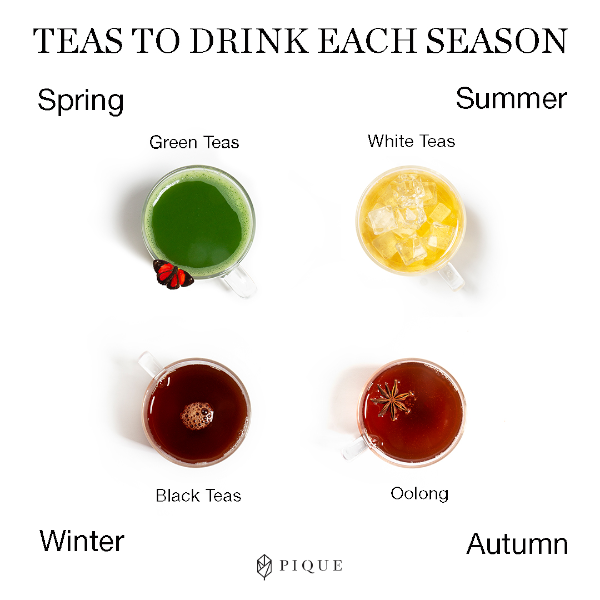
Autumn and Winter
Warming foods typically have rich, strong flavors. Spices like black pepper, ginger, cardamom, cinnamon, cloves, fennel, and nutmeg fall into this category, as do black tea and coffee (13). Warming foods help to fend off the chill of autumn and winter.
Black and oolong teas are great choices for cooler months, as are herbal teas containing warm winter spices. Chai tea – black tea brewed with a mixture of warming spices – is a quintessential winter beverage that can also be found in non-caffeinated versions.
Rooibos tea, an infusion made from a red South African herb, is another great caffeine-free option thanks to its earthy, nutty flavors, similar to those of black tea.
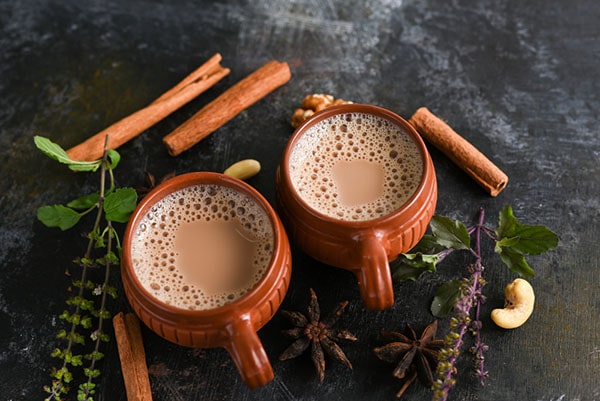
Spring and Summer
Cooling foods have the opposite effect. Their flavors are characterized as bright, crisp and fresh. Think citrus fruits, cucumber, watermelon, lotus leaf and mint (13).
Green and white teas are classified as cooling foods, and thus ideal for the spring and summer months.
Many herbal teas injected with fruity flavors also work well as cooling teas. Lemongrass, thyme and dandelion infusions, for example, are increasingly popular teas that embody cooling characteristics while offering a unique herbaceous taste.
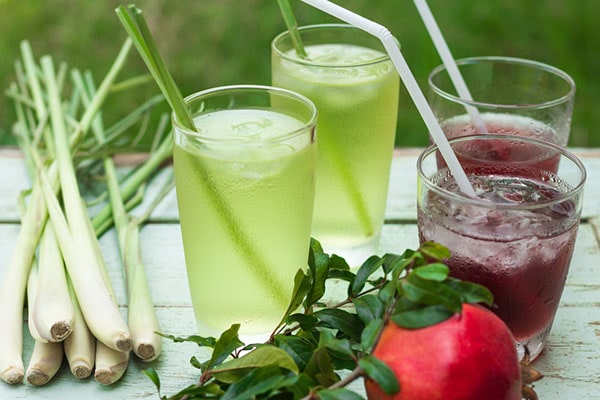
The Final Word
Regardless of which tea you choose or when you drink it, you’ll still get a slate of health benefits. Timing your teas according to time of day and season simply maximizes those benefits.
And if you’re new to the world of tea, letting the clock and calendar dictate your choices could be a great way to expose yourself to the wide variety of tea types and flavors.
Happy brewing!
